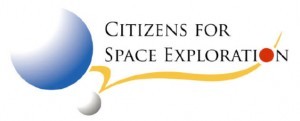Space Budgets, Policy, Missions, Benefits, International Updates
Habitats for Deep Space Exploration: NASA announces aerospace partners for its deep space habitats
NASA increases to six the number of U.S. companies the agency is partnering with to develop a habitat for astronauts assigned to months- to years-long missions to Mars. The habitat would fly in lunar orbit with astronauts during the 2020s to prepare for the Mars mission. It could become the basis for commercial space stations in Earth orbit as well. Already involved in the development, Bigelow Aerospace, Boeing, Lockheed Martin and Orbital ATK will be joined by newcomers Sierra Nevada Corporation’s Space Systems and NanoRacks in the endeavor. (Also see: NASA exploration focuses on Deep Space Hab systems and crew health and NASA preps 1000-day habitats for astronauts)
Scott Kelly on Mars Exploration: We talked to astronaut Scott Kelly about the psychological challenges of going to Mars
Space marathoner Scott Kelly, of NASA, set a new record for U.S. spaceflight as he returned to Earth on Mar. 1. His 340 days in Earth orbit aboard the International Space Station are helping NASA plan for the difficult isolation that will accompany long missions to Mars.
Moon-Mars Exploration: Is the Moon a necessary step on the path to Mars?
NASA’s plans to reach Mars with human explorers in the 2030s should proceed in the aftermath of U.S. presidential and Congressional elections this year, write Chris Carberry and Rick Zucker, Explore Mars, Inc., CEO and director for political outreach. A moon-first strategy, as proposed by the European Space Agency, is a worthy goal in and of itself but not necessary as a stepping stone to Mars, according to Carberry and Zucker, who add, “The goal of humans on Mars is a compelling one and has long-standing public and bipartisan support.”
Asteroid Mining: Space race heats up: Deep Space Industries plans to visit asteroid by 2020
Deep Space Industries plans to take its space mining aspirations to a near-Earth asteroid by end of this decade. Relying on a novel water-based propulsion system, the company’s Prospector 1 spacecraft would survey then settle to the asteroid’s surface to complete a search for resources that could be mined. Prospector 1 would be a follow-on to Prospector X, an Earth-orbiting prototype satellite that will be launched next year as a technology demonstrator. The government of Luxembourg announced in May that it was partnering with California-based Deep Space Industries for the orbital demonstration. (Also see: Asteroid Redirect Mission at critical juncture)
Lunar Exploration and Space Law: Moon Express regulatory approval prompts questions about space law
A surge in interest by commercial space companies to seek out and potentially mine resources from asteroids and the moon may raise legal issues over ownership rights. Moon Express recently won the approval of the U.S. FAA to launch the first commercial mission to the moon, a regulatory requirement spelled out in the 1967 Outer Space Treaty signed by more than 100 nations and the U.S. Commercial Space Launch Competitiveness Act, passed by Congress and signed into law by President Obama late last year. (See also: U.S. government poised to approve first private mission to the Moon)
Students and Commercial Space: As commercial space race grows, student interest takes off
Central Florida’s Embry-Riddle and Central Florida universities report increased student interest in aerospace engineering. Educators and those in the industry link the rise to an improving U.S. economy and increased commercial space activities in Florida and elsewhere.
Chinese Space Exploration: China prepares for new round of manned space missions
Preparations are underway at the Jiuquan Satellite Launch Center for the launch of China’s second space station, Tiangong-2, in mid-September. Two Chinese astronauts are to follow with the launch of the Shenzhou-11 in mid-October.
Citizens for Space Exploration – a pro-space, taxpayer, grassroots advocacy group  (http://www.bayareahouston.com/content/c_s_e/c_s_e) – has traveled to Washington, D.C. the past 24 years to meet face-to-face with Members/staff of Congress to discuss the value of America’s investment in space exploration. In order to sustain that dialogue on a regular basis, Citizens distributes “Space Exploration Update” to Congressional offices on a weekly basis. The intent is to provide an easy, quick way to stay abreast of key human space exploration program and policy developments.
(http://www.bayareahouston.com/content/c_s_e/c_s_e) – has traveled to Washington, D.C. the past 24 years to meet face-to-face with Members/staff of Congress to discuss the value of America’s investment in space exploration. In order to sustain that dialogue on a regular basis, Citizens distributes “Space Exploration Update” to Congressional offices on a weekly basis. The intent is to provide an easy, quick way to stay abreast of key human space exploration program and policy developments.







